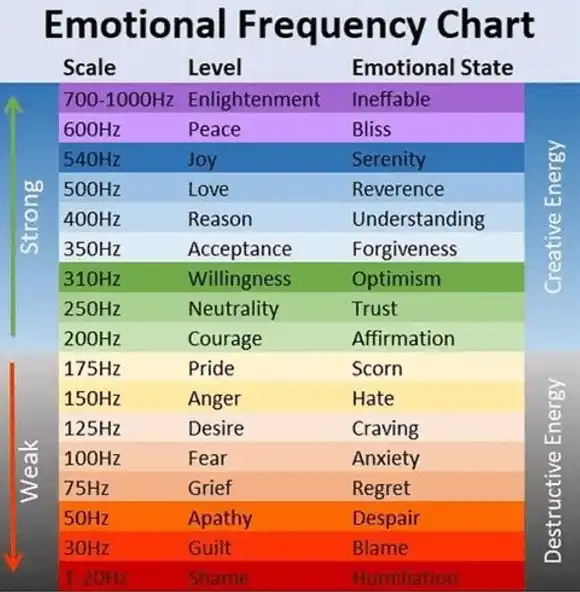The Quiet Tyranny of Intellectualized Emotions

“Intellectualized emotions” serve as a defense mechanism in which a person prefers to deal with emotional conflicts by spending excessive time intellectually dissecting and reasoning them rather than feeling them. Using reason and logic to separate oneself from the emotional aspects of a situation is a common symptom of this inclination.
It may be difficult for someone who intellectualizes emotions to recognize or acknowledge them; instead, they may prefer to approach emotions cognitively, a defense mechanism to protect themselves from negative emotions.
It may put a barrier between your thoughts and feelings, and you feel emotionally numb or detached from an outside trigger. As a result, it also hinders emotional processing, impairs relationships, and makes communicating and managing emotions harder.
Sigmund Freud, the founder of psychoanalysis, described intellectualization as a defense mechanism that distances one from difficult emotions by excessively focusing on abstract thoughts or rational explanations.
Example of intellectualized Emotions
Let’s say you are going through a breakup with your significant other. You intellectualize emotions by concentrating only on examining the reasons for the breakup, rather than letting yourself experience the pain and grief that come with a relationship ending.
For instance, you may say anything along these lines:
“I understand that our priorities and goals for the future differed, which is why our partnership ended. It’s evident that there were some personality conflicts between us, which finally resulted in our decision to break up.”
While these observations may be valid, your primary focus on intellectualizing the breakup serves as a defense mechanism to avoid experiencing the full weight of your emotions, thinking these intellectualized emotions might temporarily protect you from emotional pain.
Effects of Intellectualized Emotions
Constantly intellectualizing emotions without facing unpleasant feelings can become toxic. This suppression of emotions will intensify by bottling up inside you over time and will explode later in scary ways, like mental health issues, anxiety, mood disorders, and panic attacks.
Here are some effects of intellectualized emotions;
Emotional Disconnect.
When you intellectualize emotions, you might find connecting with your true feelings hard. For example, instead of feeling sad when a friend cancels plans, you might think about their reasons and analyze the situation without acknowledging your disappointment.
Difficulty in Relationships.
When you do not fully express your emotions, others might find it hard to understand or feel close to you. For instance, if you always talk about your feelings in a detached way, your partner might feel distant or find it hard to connect with you emotionally.
Limited Self-Understanding.
If you ignore your feelings and solely concentrate on intellectualizing them, you may miss out on significant self-discoveries. For example, you may fail to recognize the need for assistance or time to grieve if you never let yourself experience the full depth of your pain following a loss.
Suppressed Growth.
You may not be able to develop and learn from your experiences if you have intellectualized emotions. If you never let yourself experience the hurt of rejection, for instance, you may not develop healthy coping mechanisms and continue to repeat the same patterns in your relationships.
Increased Stress
Analyzing and justifying your feelings all the time might wear you out mentally. For instance, if you’re constantly trying to understand why you’re feeling a specific way rather than letting yourself experience it, you may get more anxious and feel more overwhelmed by physical problems.

Signs of Intellectualized Emotions
Here are some signs of intellectualizing emotions;
Stuck on the Facts
You repeatedly play back the specifics of a scenario, much like a broken record. You don’t feel the emotions surrounding it; instead, you just concentrate on what happened and not how it affected you.
Undermining your Emotions
When you downplay your feelings, you’re telling yourself they don’t matter. This can make you think they are unimportant or not worth your time.
Overthinking
One technique to keep yourself from experiencing those feelings is to overthink things. Instead of acknowledging them and letting them happen organically, you can perform constant mental acrobatics in an attempt to analyze and comprehend the circumstances.
This can involve revisiting previous incidents, examining possible outcomes, and attempting to defend your feelings rationally.
Avoidance with humor
A common coping strategy to lift one’s spirits involves humor. In many situations, comedy can be a constructive and healthy way to cope with difficult circumstances. However, comedy can be an indication of intellectualizing emotions if it is regularly employed to avoid dealing with real feelings.
Stop intellectualizing your emotions.
Instead of suppressing or avoiding your feelings, accept them as valid and vital aspects of your inner experience. Here are some key steps to learning how to feel emotions:
Emotional Awareness
To prevent emotions from becoming intellectualized, one must be emotionally aware. Emotions can be overly analyzed or rationalized, but a sign of this inclination is being aware of one’s feelings and accepting them without passing judgment.
Seek to establish a more profound connection with your emotions rather than intellectualizing them away. Communicate your feelings through creative endeavors, journaling, or chatting with a close friend.
Somatic exercises
Somatic exercises connect the body and emotions. Search online for various options—vocalizing, like “vuuuuu,” calms by stimulating the vagus nerve. Breathwork aids emotion release; try Wim Hof’s exercises. Body scans help locate emotions in the body and ground you. Consult medical professionals before trying new exercises alone.
Mindfulness
Meditation is a self-help tool that ensures well-being. Silence observation, grounding meditations, and body scans are effective techniques for processing painful emotions. You can even find meditations tailored to specific emotions. As discussed before, meditation benefits emotional processing.
Journaling
Journaling is a powerful tool for emotional processing. It allows for intellectual analysis followed by letting go. Describe emotions, including physical sensations, colors, shapes, and textures.
Draw if it helps. Then, focus on feeling the emotion and write about it. Close your eyes and observe the emotion without judgment. Notice any changes. This practice enables a sense of safety in processing emotions.
Final Words
Recognize your initial challenges, such as numbness or ambiguity, and remind yourself to trust the process even when it is uncomfortable. While it’s acceptable to doubt progress occasionally, it’s essential to learn the benefits of accepting uncertainty.
Let your creativity and intuition lead the way to progress rather than perfection. With more practice, you can better comprehend and bond with your feelings. By appreciating the process’s cerebral and emotional components, you can achieve balance and develop an understanding of your inner feelings. This way, your motions will be easier to access and understand.
FAQs about intellectualized Emotions
What are intellectualized emotions?
Intellectualized emotions occur when someone explains or analyzes feelings logically instead of truly feeling them. They think about emotions rather than experiencing them. This defense mechanism helps avoid vulnerability or discomfort but can distance people from authentic emotional connection or self-understanding.
What’s the difference between thinking and feeling emotions?
Thinking emotions involves analyzing or explaining why you feel a particular way. Feeling emotions means actually experiencing sensations—like tightness, warmth, or tears—and expressing them. Thinking gives understanding; feeling provides healing. Both are important, but too much thinking can block emotional processing and connection.
How can I stop intellectualizing my emotions?
Start by slowing down and noticing physical sensations or impulses when feelings arise. Label emotions—sad, angry, hurt—without explaining them—practice mindfulness, journaling, or talking openly about emotions. Therapy can also help reconnect thought and feeling safely.
How does therapy help with intellectualized emotions?
Therapy helps people reconnect with feelings by providing a safe space to experience emotions without judgment. Therapists gently challenge over-thinking patterns, teach emotional awareness skills, and guide clients to notice body sensations. This process builds emotional comfort and authentic self-expression over time.
Can intellectual and emotional intelligence coexist?
Absolutely. Accurate intelligence includes both logic and emotion. Emotional intelligence complements intellect by helping you understand, express, and manage feelings effectively. When balanced, thinking and feeling work together—making decisions wiser, relationships stronger, and life more fulfilling.
What causes someone to develop this habit?
Intellectualizing often develops early when emotions weren’t welcomed or felt unsafe. If someone grew up rewarded for being “rational” but discouraged from crying or showing fear, they learn to cope by thinking rather than feeling. Trauma, perfectionism, or cultural norms can reinforce it.
Can intellectualizing affect relationships?
Yes. When you intellectualize emotions, others may see you as distant or unemotional. This makes a deep connection difficult. Loved ones may feel unheard or unseen because of a lack of emotional warmth. Relationships thrive on empathy and vulnerability, not just logic or explanations.
How can I tell if I’m intellectualizing my feelings?
You might be intellectualizing if you explain emotions instead of naming or feeling them. For example, saying “I understand why I’m sad” instead of actually feeling sadness. Other signs include detachment, over-rationalizing situations, or struggling to connect emotionally with others or with yourself.
Is intellectualizing emotions always destructive?
Not always. Sometimes intellectualizing helps manage stress or make rational decisions. It becomes harmful when it completely replaces emotional awareness. Healthy balance means using logic and emotion together—understanding feelings intellectually while also allowing yourself to experience and express them naturally.
Why do people intellectualize emotions?
People intellectualize emotions to protect themselves from emotional pain or overwhelm. By focusing on logic, analysis, or facts, they avoid feeling sadness, anger, or fear. It feels safer to think rather than feel, especially for those who grew up discouraged from expressing emotions openly.






